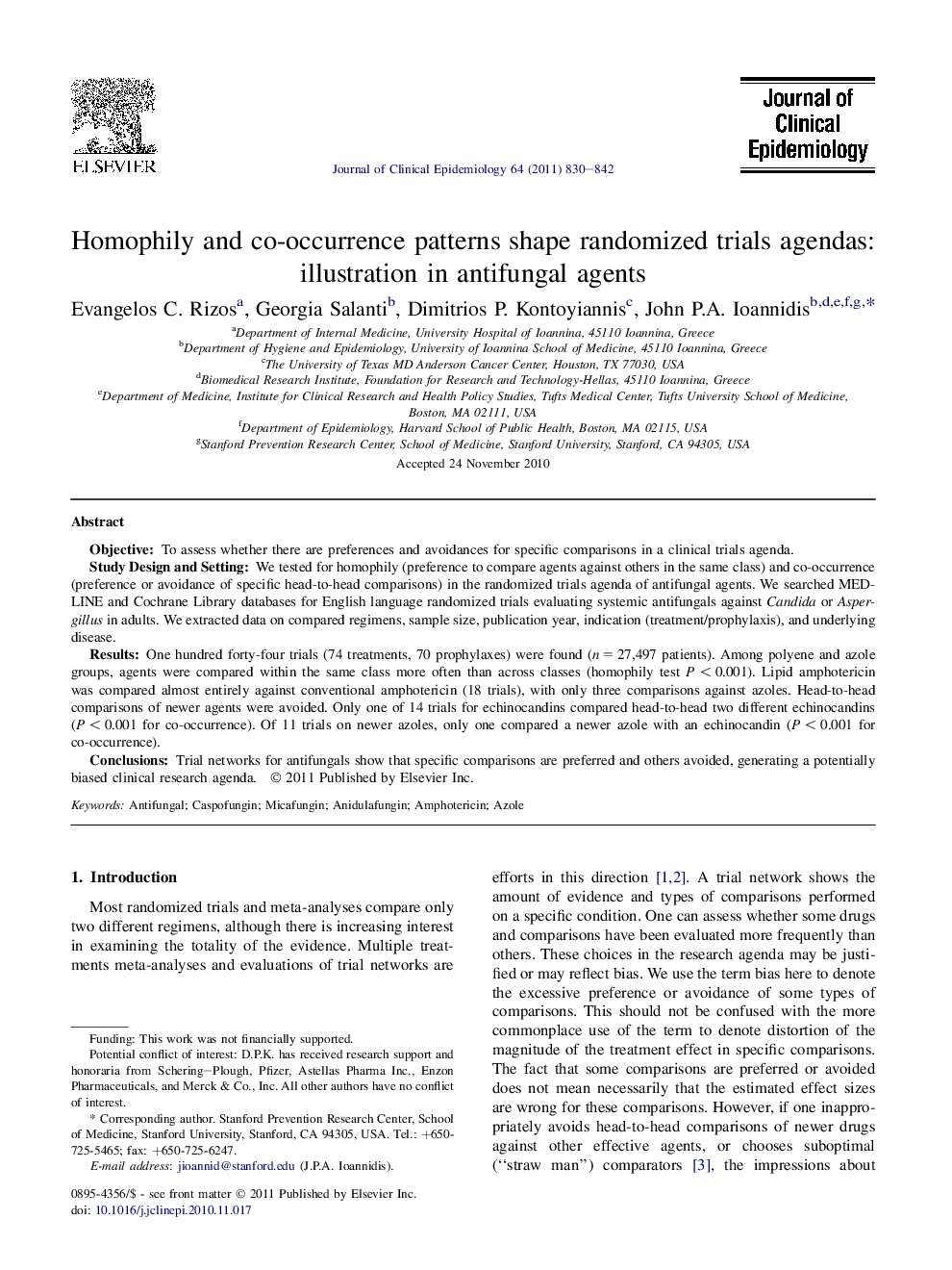| Article ID | Journal | Published Year | Pages | File Type |
|---|---|---|---|---|
| 1082554 | Journal of Clinical Epidemiology | 2011 | 13 Pages |
ObjectiveTo assess whether there are preferences and avoidances for specific comparisons in a clinical trials agenda.Study Design and SettingWe tested for homophily (preference to compare agents against others in the same class) and co-occurrence (preference or avoidance of specific head-to-head comparisons) in the randomized trials agenda of antifungal agents. We searched MEDLINE and Cochrane Library databases for English language randomized trials evaluating systemic antifungals against Candida or Aspergillus in adults. We extracted data on compared regimens, sample size, publication year, indication (treatment/prophylaxis), and underlying disease.ResultsOne hundred forty-four trials (74 treatments, 70 prophylaxes) were found (n = 27,497 patients). Among polyene and azole groups, agents were compared within the same class more often than across classes (homophily test P < 0.001). Lipid amphotericin was compared almost entirely against conventional amphotericin (18 trials), with only three comparisons against azoles. Head-to-head comparisons of newer agents were avoided. Only one of 14 trials for echinocandins compared head-to-head two different echinocandins (P < 0.001 for co-occurrence). Of 11 trials on newer azoles, only one compared a newer azole with an echinocandin (P < 0.001 for co-occurrence).ConclusionsTrial networks for antifungals show that specific comparisons are preferred and others avoided, generating a potentially biased clinical research agenda.
